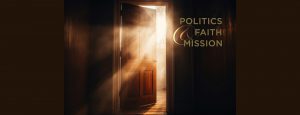
NewsJeff Brumley | June 8, 2025
Republicans are widening the assault on higher education with a proposed tax increase on private university endowments.
The “woke” tax is part of the “big beautiful bill” passed by the U.S. House in May and currently under consideration in the Senate. As currently crafted, the measure increases excise taxes on private university endowments from 1.4% to 7%, 14% or 21% depending on per-student endowment value.
The Trump administration already has canceled hundreds of millions in federal grants to leading universities such as Harvard, Princeton and Columbia because of pro-Palestinian campus protests and resentment over diversity, equity and inclusion programs.
The ideological nature of the proposed endowment tax increase was clearly communicated by the House Ways and Means Committee.
Jason Smith
The tax increase is intended to hold “woke, elite universities that operate more like major corporations and other tax-exempt entities accountable, ensuring they can no longer abuse generous benefits provided through the tax code,” said committee Chairman Jason Smith of Missouri.
An analysis by The New York Times identified at least 58 schools with large endowments that could be penalized by the Republican tax increase, including Duke University and Davidson College in North Carolina, Princeton and Yale universities, Massachusetts Institute of Technology, Rice University in Texas, Earlham College in Indiana and the Baylor College of Medicine in Houston. Baylor University in Waco, Texas, is a separate school and was not identified in the study.
University officials have been scrambling to inform legislators endowments are primarily used for operating expenses, tuition assistance and other educational initiatives.
“I’ve spent more time, I think, this year than in my previous six years at Rice doing that,” said Rice University President Reginald DesRoches.
Reginald DesRoches
The university launched The Rice Investment in 2019 to eliminate financial barriers for students from families with incomes under $140,000 and adjusted support for those earning as much as $300,000 annually. The program is financed largely by the university’s $8 billion endowment, he explained.
“We draw 5% of the endowment annually, which is in line with our peers, and that gives us about $400 million. For us, that’s 40% of our budget — actually the second largest in the country. And half of that goes directly toward financial aid.”
DesRoches said he’s been explaining the situation to lawmakers on Capitol Hill and found some of them surprised about the function of endowment funds.
“We have pamphlets that show how we use our endowment. And the response is always, ‘Wow, we didn’t realize that. We didn’t know this.’ So we are putting a lot of time and effort (into) explaining how we use our endowment, how important it is for our student body and how a tax will just impact the amount of scholarships we’d be able to give.”
Doug Hicks
Davidson College President Doug Hicks said the school is “hoping for some relief” from members of Congress, according to a report by The News & Observer in Raleigh.
“We cover 93% of our financial aid ourselves, and a significant portion of that comes from the endowment,” he explained. “We believe we’re being good stewards of our endowment with the different resources we have to provide access, opportunity and affordability to our students.”
The school would survive the estimated $6 million increase it would sustain under the new tax, but the budget would be placed under major stress in the process, he said. “It would create serious pressure on our financial aid budget and our ability to be need blind, to meet 100% of demonstrated need for all students, and to do so without loans in our package.”
“Duke University’s annual endowment tax would increase from $13 million to $72 million.”
Duke University’s annual endowment tax would increase from $13 million to $72 million annually according to a study in the Chronicle of Higher Education.
Like other institutions on the Republican hit list, Duke will face a multitude of difficult choices and situations if the tax increase becomes law, Duke public policy Professor Don Taylor wrote in his “Two Ditches” Substack.
“Elite higher education is under bad faith attack that is essentially political payback, but we need to try very hard to search for areas and ways in which we need to reform because they exist. For the good of the institution, the knowledge curating responsibility of higher education, and for our world, we need to defend ourselves while looking honestly inward for needed changes.”
Don Taylor
The effects may result in decrease in capacity for a university that has “punched above our weight” as an academic institution, Taylor added. “We are going to have to make agonizing decisions that will see many good people lose their jobs, and many good things no longer be done. We risk diluting everything if we do not focus and there is no plausible option that does not see recurring multi-hundred million dollar reductions annually from our enterprise.”
Baylor College of Medicine is currently working to determine if assessment on endowments would actually apply to the institution, General Counsel Robert Corrigan Jr. said.
Robert Corrigan
“We believe that this tax was not intended to impact small, private medical schools like Baylor College of Medicine. We are currently working with our elected representatives to affect a solution to this issue.”
But Republicans describe the tax increase as part of Trump’s grand vision of a society and economy that will usher in a “golden age” for the nation.
“The One, Big, Beautiful Bill, makes the successful 2017 Trump tax cuts permanent, provides additional tax relief for working families and small businesses, rewards investment and manufacturing in America, and holds woke elites accountable while ending tax giveaways to the wealthy, China, and illegal immigrants,” Smith said.
The “woke, elite universities” are being targeted because they “operate more like major corporations and must be held accountable,” he said.
The libertarian Cato Institute said the U.S. tax code should not be used to settle political scores or to punish people with differing ideological viewpoints.
“But that is clearly what House Republicans are doing when they identify the targets of their tax as ‘woke,’” the “Cato at Liberty” blog explained days before the bill was passed in the House and sent to the Senate. “Punishing ideological adversaries might not be their only motivation — they might want new revenue or think college endowments get sweetheart tax treatment — but it is unquestionably a motive.”
The tax proposal also threatens to inhibit giving to private college endowments.
“If people want to give their own money to ‘woke, elite universities,’ who is government to judge? Instead, it should worry about its own, forced funding of higher ed,” Cato said.
Meanwhile, the proposal adds insult to injury for American colleges and universities already under attack by the Trump administration, according to Inside Higher Education.
“The proposal comes amid the president’s full blown attack on higher education, which has seen the federal government clamp down on research funding, go after colleges for alleged antisemitism, take aim at diversity, equity, and inclusion programs, and attempt to deport international students.”
Related articles:
United Methodist schools stand up to Trump administration
Furman faculty say they won’t give in to outside pressure
Trump vs. Harvard, round 2: The Constitution fights back | Opinion by Edmond Davis

(123rf.com)
• Stuck in the Middle With You
• Highest Power: Church + State
• Change-making Conversations
(123rf.com)
— A BNG interview series on the 2024 election and the Church
News
Opinion
Opinion
News
© 2025 Baptist News Global. All rights reserved.
Want to share a story? We hope you will! Read our republishing, terms of use and privacy policies here.

Recent Comments